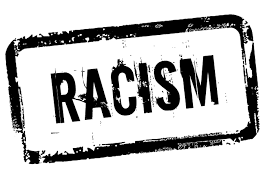OCTOBER 27, 2019 – An acquaintance running for mayor of his town recently told me he’d been labeled “racist” in a hard-fought campaign. “Being called ‘racist,’” he told me, “is the next worst thing to being called a pedophile.” He, of course, denies being racist.
According to Merriam-Webster’s, “racism is a belief that race is the primary determinant of human traits and capacities and that racial differences produce an inherent superiority of a particular race.” By that measure, you’d be right to label as racist, someone who expressly espouses that white folks are by their very skin color superior to black folks with darker skin color. You’d be quite off target, however, if you called my political acquaintance, “racist.”
Application of “racist” across a broad spectrum of statements, beliefs and perceptions, dilutes the term. Worse, and ironically so, liberal use of “racist” can be just as wrong and unjust as . . . racism itself.
But indignant denial of the “racist” charge shouldn’t let us white folks off the hook regarding the need to acknowledge long-standing racism.
For me, this gets a little personal.
For years at my evening bus stop I observed, “misbehaving black youth,” carrying on something awful. “You’re not helping your cause,” I’d say to myself, as if to them, but I’d deny vehemently that I was somehow racist.
Then two revelatory factors intervened. First was my oldest son’s activism in the local black community, particularly around the time that Philando Castille was shot by a policeman during a routine traffic stop less than a half mile from my home. Second was a client’s complaints about the behavior of black tenants in Section 8 housing he owned.
Our son’s activism caused an awakening in my wife and me. We attended packed, heated meetings at city hall and met friends and family of Philando Castile. We listened to their stories about life-long, persistent, ubiquitous encounters with systemic prejudice and bigotry, much of it at the hands of police. We’d been wholly oblivious. Or had we? When we summoned our memories of the past 30 years, we had to acknowledge that the vast majority of traffic arrests we’d seen along the main drag through our predominantly white town involved people of color.
My wife and I started reading critically acclaimed books about blacks in America. The honest history of blacks in this country is quite damning . . . of whites.
I then began to see my client’s complaints in a different light. I realized how naive it was to criticize a young black man for being loud and wearing his belt below his butt—a kid who had six strikes against him before school age and whose ancestors had been treated like dirt and worse for 400 years.
I saw how unjust it is to lift the heavy boot of history from the neck of a black American, then think or whisper, “Come on! Get up! What’s wrong with you?”
If not every other American is racist, it’s probably just to call a good many of us problematically naive.
(Remember to subscribe to this blog and receive notifications of new posts by email.)
© 2019 Eric Nilsson
